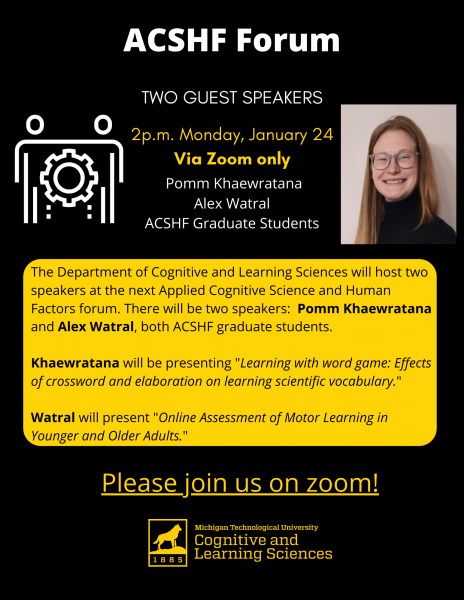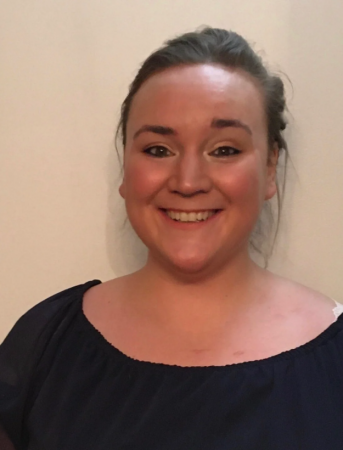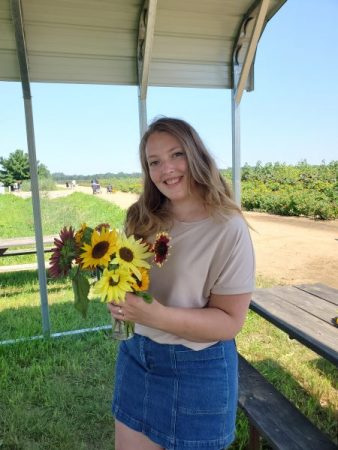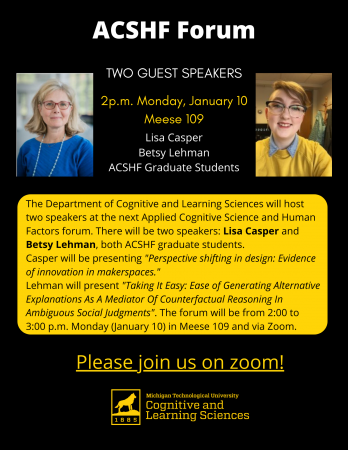The Applied Cognitive Science and Human Factors (ACSHF) Forum will be held from 2-3 p.m. Monday (Jan. 24) virtually via Zoom.
There will be two speakers: Pomm Khaewratana and Alex Watral, both ACSHF graduate students.
Pomm Khaewratana:
Title: Learning with word game: Effects of crossword and elaboration on learning scientific vocabulary
Abstract: Crosswords have been used in a variety of science classrooms as a supplementary tool to help students learn technical vocabulary and to improve scientific thinking. However, the majority of crossword studies showed positive findings only for the former and almost none for the latter. We currently lack evidence for the usefulness of crossword in learning anything beyond the vocabulary and their definition or associated context provided as crossword hints. In this presentation, I will describe a continuation of the series of my experiments that evaluate the effect of crossword with an add-on elaboration task. The task supposedly enhances learning and retention of learned vocabulary by having learners generate sentences from technical words that depict an application-based use of the words. Fifty undergraduate students were recruited as participants in the aforementioned within-subject-design experiment. Results indicated significant improvement on memory level but not on the higher level of application.
Alex Watral:
Title: Online Assessment of Motor Learning in Younger and Older Adults
Abstract: Motor learning is a specific type of learning that occurs through repetition of a movement following the law of practice wherein rapid improvements in performance occur initially, followed by more gradual improvements as practice continues. In this sense, we can think of motor skill learning as unfolding in two phases that may rely on different cognitive mechanisms. Evidence has shown that motor learning abilities change with healthy aging such that older adults are slower to learn novel motor tasks initially while ultimately they are still able to learn to the same degree as young adults. One of the gold-standard approaches to studying motor learning is called the visuomotor rotation (VMR) paradigm. Motor learning tasks like the VMR paradigm are typically implemented in our lab using a robotic device called a Kinarm. As our understanding of motor learning evolves, we need to focus on options for testing that are more accessible than laboratory limited approaches. We have created a web-based application to assess visuomotor adaptation in a remote setting. No application downloads are required on the part of the participant. The only requirement is for them to have a computer (laptop or desktop) and an internet connection. This makes the application far more accessible than current laboratory and portable platforms. The overarching goal of this project is to validate the web-based application in younger adults as well as healthy older adults. We are also interested in verifying that previously identified correlations between the early and late stages of motor learning and implicit memory, spatial working memory, and visual-spatial abilities can be observed with this online app. Healthy younger adults (n=21) and healthy older adults (n=17) participated in this study. Each participant met with a researcher via Zoom and shared their screen while performing the VMR task and cognitive battery so that the researcher could troubleshoot as needed. Preliminary results suggest that the online application produced results similar to the laboratory task. Further analyses will be conducted to determine if there were significant differences between the two collection methods (app vs laboratory) and to see how cognitive constructs correlate with performance on the VMR app.



